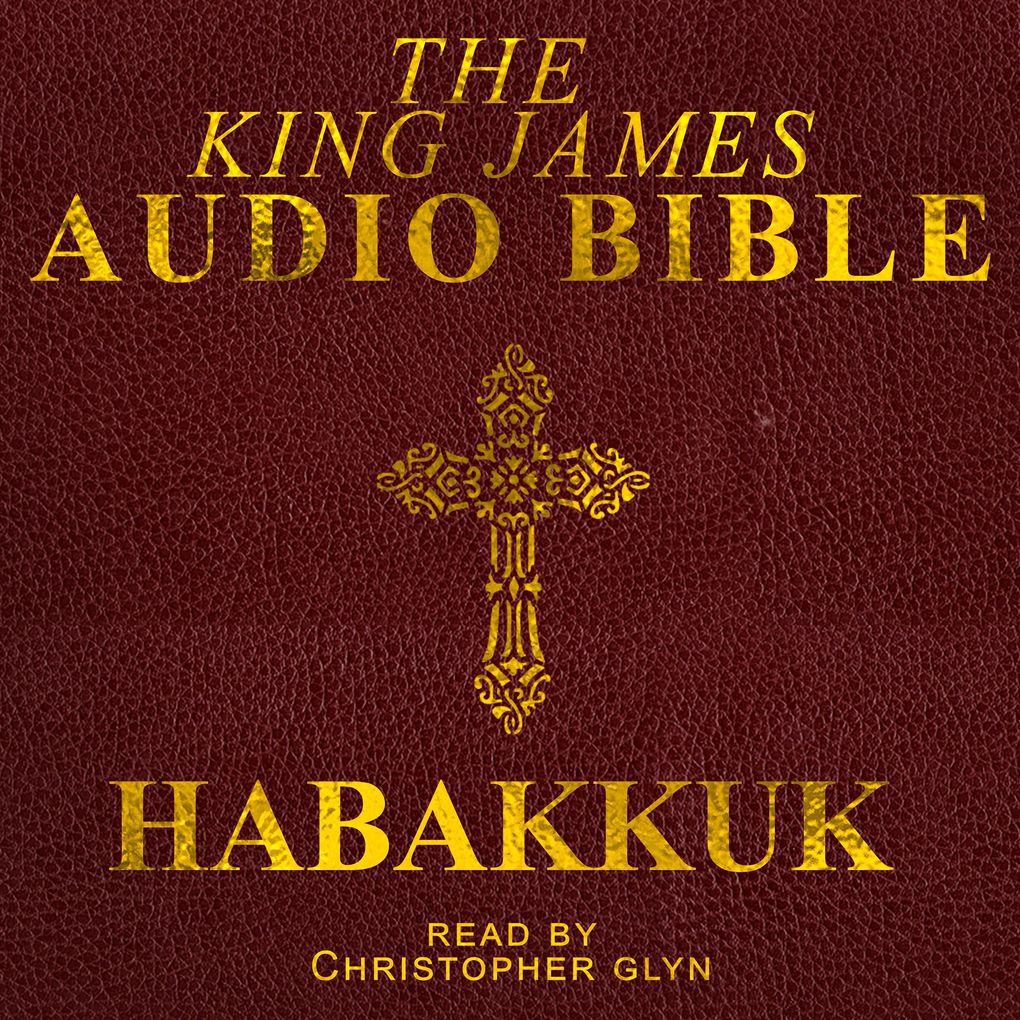
Sofort lieferbar (Download)
The Book of Habakkuk, positioned among the Twelve Minor Prophets in the Hebrew Bible and the Old Testament, presents a unique dialogue between the prophet Habakkuk and God. Unlike other prophetic books that primarily focus on conveying God's messages to the people, Habakkuk is characterized by the prophet's direct questioning of God regarding the presence of evil and injustice in Judah and the world. Written around the late 7th century BCE, during a time of impending Babylonian threat, this book reflects the deep turmoil and perplexity faced by the prophet as he contemplates the ways of God with humanity.
Habakkuk begins with the prophet's lament over the widespread injustice and corruption in Judah, questioning why God allows wickedness to thrive and why the divine response to such evil seems delayed. In an unusual twist for prophetic literature, God answers Habakkuk, revealing that the Babylonians, known for their ruthlessness, are to be the instruments of divine judgment against Judah for its unfaithfulness.
The prophet, however, is troubled by this response. He struggles with the notion that God would use a nation more wicked than Judah to punish his people. This leads to a second complaint, where Habakkuk questions the justice of using the Babylonians, a seemingly more corrupt entity, as a means of correction.
God's reply assures Habakkuk that the Babylonians will not escape judgment for their own iniquities. He calls for faithfulness and patience, emphasizing that "the righteous shall live by his faith" (Habakkuk 2:4), a pivotal statement that underlines the book's theme and later becomes significant in Christian theology.
The book concludes with a beautiful prayer or psalm of Habakkuk, which moves from a personal to a communal plea for mercy amidst the impending judgment. In this prayer, Habakkuk expresses his trust in God's sovereignty and justice, despite the circumstances. He commits to rejoicing in the Lord, even if the worst fears come to pass, showing a profound faith that transcends understanding.
The Book of Habakkuk stands out for its honest portrayal of doubt, faith, and the struggle to understand God's ways. It addresses timeless questions about the problem of evil, the nature of divine justice, and the challenge of maintaining faith in difficult times. Through Habakkuk's dialogue with God, readers are reminded that faith involves trusting in God's larger plan, even when that plan is beyond our understanding, and that justice, though it may seem delayed, will ultimately prevail.
Habakkuk begins with the prophet's lament over the widespread injustice and corruption in Judah, questioning why God allows wickedness to thrive and why the divine response to such evil seems delayed. In an unusual twist for prophetic literature, God answers Habakkuk, revealing that the Babylonians, known for their ruthlessness, are to be the instruments of divine judgment against Judah for its unfaithfulness.
The prophet, however, is troubled by this response. He struggles with the notion that God would use a nation more wicked than Judah to punish his people. This leads to a second complaint, where Habakkuk questions the justice of using the Babylonians, a seemingly more corrupt entity, as a means of correction.
God's reply assures Habakkuk that the Babylonians will not escape judgment for their own iniquities. He calls for faithfulness and patience, emphasizing that "the righteous shall live by his faith" (Habakkuk 2:4), a pivotal statement that underlines the book's theme and later becomes significant in Christian theology.
The book concludes with a beautiful prayer or psalm of Habakkuk, which moves from a personal to a communal plea for mercy amidst the impending judgment. In this prayer, Habakkuk expresses his trust in God's sovereignty and justice, despite the circumstances. He commits to rejoicing in the Lord, even if the worst fears come to pass, showing a profound faith that transcends understanding.
The Book of Habakkuk stands out for its honest portrayal of doubt, faith, and the struggle to understand God's ways. It addresses timeless questions about the problem of evil, the nature of divine justice, and the challenge of maintaining faith in difficult times. Through Habakkuk's dialogue with God, readers are reminded that faith involves trusting in God's larger plan, even when that plan is beyond our understanding, and that justice, though it may seem delayed, will ultimately prevail.
Mehr aus dieser Reihe
Produktdetails
Erscheinungsdatum
01. Januar 2018
Sprache
englisch
Ausgabe
Gekürzt
Dateigröße
7,41 MB
Laufzeit
9 Minuten
Reihe
The Old Testament, 35
Autor/Autorin
Christopher Glyn
Sprecher/Sprecherin
Christopher Glyn
Verlag/Hersteller
Produktart
MP3 format
Dateiformat
MP3
Audioinhalt
Hörbuch
GTIN
9781909271418
Bewertungen
0 Bewertungen
Es wurden noch keine Bewertungen abgegeben. Schreiben Sie die erste Bewertung zu "Habakkuk" und helfen Sie damit anderen bei der Kaufentscheidung.

































